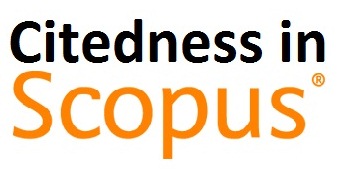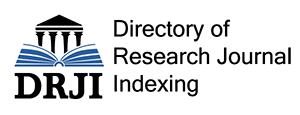HADITH-BASED RELIGIOUS MODERATION: Strategies for Building Social Resilience among Indonesian Students in Syria in the Wake of the Fall of the Assad Regime
Abstract
This study explores the role of hadith-based religious moderation in enhancing the social resilience of Indonesian students studying in Syria during the downfall of the Bashar al-Assad regime. The main objective is to identify strategies for implementing the values of religious moderation that are relevant to preventing radicalism and fostering social resilience. The research employs Yūsuf al-Qaraḍāwī’s theory of religious moderation within a sociological case study approach. Data were collected through in-depth interviews, non-participant observation, and documentation. The research questions include:(1) How is the contextual interpretation of ḥadīths on moderation understood among Indonesian students in Syria? (2) How are the prophetic principles of moderation applied to build social resilience in the post-Assad context? (3) What are the outcomes of internalizing hadith-based moderation among these students?The findings reveal that, based on al-Qaraḍāwī’s pillars of moderation, students demonstrate balance (tawāzun) by maintaining religious commitment while avoiding conflict and focusing on academic and religious studies. In terms of tolerance (tasāmuḥ), students show greater openness toward differences. Meanwhile, regarding comprehensiveness (syumūliyah),they actively engage in social interactions and embrace diverse groups without aligning with political factions. Social resilience efforts are manifested through hadith-based study circles emphasizing peace and harmony among Muslims. Consequently, Indonesian students remain unaffected by the demonstrations and civil resistance against the government.[Penelitian ini mengeksplorasi peran moderasi beragama yang berpijak pada hadis dalam meningkatkan resiliensi sosial mahasiswa Indonesia yang sedang studi di Suriah pada fase jatuhnya rezim Bashar Assad. Kajian utama bertujuan mengidentifikasi strategi implementasi nilai-nilai moderasi beragama yang relevan untuk mencegah radikalisme dan membentuk ketahanan sosial. Metodologi penelitian menggunakan teori moderasi beragama Yūsuf al-Qaraḍāwī dengan pendekatan studi kasus sosiologis. Pengumpulan data dilakukan melalui wawancara mendalam, observasi non partisipasi, dan dokumentasi. Rumusan masalah penelitian meliputi: (1) Bagaimana kontekstualitas interpretasi hadis-hadis moderasi di kalangan mahasiswa di Suriah? (2) Bagaimana implementasi hadis moderasi dalam membangun resiliensi sosial pasca-jatuhnya rezim Assad? (3) Bagiamana hasil internalisasi hadis moderasi bagi mahasiswa Indonesia di Suriah? Hasil penelitian menunjukkan bahwa berdasarkan pilar moderasi yang ditawarkan al-Qaraḍāwī, dari aspek tawāzun, mahasiswa mampu bersikap religius dengan menghindari konflik dan focus pada kajian ilmiah dan keagamaan. Dari aspek tasāmuḥ, mahasisa lebih toleransi dalam melihat perbedaan. Sementara dari aspek syumūliyah, mahasiswa aktif sosialisasi dan merangkul semua golongan tanpa terlibat dalam arus pro-kontra pemerintahan. Upaya resiliensi sosial diimplementasikan melalui kajian-kajian hadis moderasi yang mengedepankan perdamaian antar sesama muslim. Hal ini menjadikan mahasiswa Indonesia tidak terpengaruh oleh demonstrasi dan perlawanan rakyat terhadap pemerintah.]
Keywords
References
Abdul Aziz bin Abdullah bin Baz. Majmu’ Fatawa Wa Maqalat Mutanawwi’ah. Riyadh: Dar al-Qasim, n.d.
Abdul Rahim al-Iraqi. Al-Mugni ‘an Haml Al-Asfar Fi Takhrij Ma Fi Al-Ihya Min Al-Akhbar. Bairut: Dar Shadir, 2000.
Alhaffar, M.H.D.B.A. “Public Health Consequences after Ten Years of the Syrian Crisis: A Literature Review.” Globalization and Health 17, no. 1 (2021). https://doi.org/10.1186/s12992-021-00762-9.
Anggadwita, G. “Empowering Islamic Boarding Schools by Applying the Humane Entrepreneurship Approach: The Case of Indonesia.” International Journal of Entrepreneurial Behaviour and Research 27, no. 6 (2021): 1580–1604. https://doi.org/10.1108/IJEBR-11-2020-0797.
Bawadi, H. “Barriers to the Use of Mental Health Services by Syrian Refugees in Jordan: A Qualitative Study.” Eastern Mediterranean Health Journal 28, no. 3 (2022): 197–203. https://doi.org/10.26719/emhj.22.030.
Bdaiwi, Y. “Impact of Armed Conflict on Health Professionals’ Education and Training in Syria: A Systematic Review.” BMJ Open 13, no. 7 (2023). https://doi.org/10.1136/bmjopen-2022-064851.
Burdine, J Thompson. “Interpretive Description: A Flexible Qualitative Methodology for Medical Education Research.” Medical Education 55, no. 3 (2021): 336–43. https://doi.org/10.1111/medu.14380.
Hasyim, Sharif. “TUJUAN PENDIDIKAN ISLAM DALAM PERSPEKTIF HADIS Muhammad Abror Rosyidin.” Nabawi: Journal of Hadith Studies 2, no. 1 (2022): 162–200.
Helmy, M I. “The Understanding of Islamic Moderation (Wasaṭiyyah Al-Islam) and the Hadiths on Inter-Religious Relations in the Javanese Pesantrens.” Indonesian Journal of Islam and Muslim Societies 11, no. 2 (2021): 377–401. https://doi.org/10.18326/ijims.v11i2.377-401.
Hennink, M. “Sample Sizes for Saturation in Qualitative Research: A Systematic Review of Empirical Tests.” Social Science and Medicine 292 (2022). https://doi.org/10.1016/j.socscimed.2021.114523.
Jamilah, S. “Moderate Islamic Education to Enhance Nationalism among Indonesian Islamic Student Organizations in the Era of Society 5.0.” Journal of Social Studies Education Research 12, no. 3 (2021): 79–100.
Lubis, S I. “How Religious Tolerance Can Emerge among Religious People: An Investigation on the Roles of Intellectual Humility, Cognitive Flexibility, and Trait Aggressiveness.” Asian Journal of Social Psychology 25, no. 2 (2022): 276–87. https://doi.org/10.1111/ajsp.12493.
Muhammad bin Ismail al-Bukhari. Shahih Al-Bukhari. Kairo: Maktabah Salafiyyah, n.d.
Mukhibat, M. “Development and Evaluation of Religious Moderation Education Curriculum at Higher Education in Indonesia.” Cogent Education 11, no. 1 (2024). https://doi.org/10.1080/2331186X.2024.2302308.
Mulyana, R. “Religious Moderation in Islamic Religious Educatiotextbook and Implementation in Indonesia.” HTS Teologiese Studies / Theological Studies 79, no. 1 (2023). https://doi.org/10.4102/HTS.V79I1.8592.
Nadia, Z. “Gender Equality within Family in Islamic Perspective: Insights from The Hadiths of Ummul Mukminin.” Jurnal Studi Ilmu Ilmu Al Qur an Dan Hadis 25, no. 1 (2024): 161–86. https://doi.org/10.14421/qh.v25i1.5260.
Najiyah, N.L.N.N. “Between Prohibition and Permissibility of Islamic Art: An Application of Ma’na-Cum-Maghza Approach on Hadiths of Music, Painting and Dance.” Jurnal Studi Ilmu Ilmu Al Qur an Dan Hadis 23, no. 2 (2022): 237–60. https://doi.org/10.14421/qh.v23i2.3641.
Rahmat, M. “The Impact of Inclusive Islamic Education Teaching Materials Model on Religious Tolerance of Indonesian Students.” International Journal of Instruction 15, no. 1 (2022): 347–64. https://doi.org/10.29333/iji.2022.15120a.
Rohayana, A D. “Critique of Radical Religious Paradigm: An Epistemological Analysis from Principles of Islamic Thought.” Indonesian Journal of Islam and Muslim Societies 11, no. 1 (2021): 163–84. https://doi.org/10.18326/IJIMS.V11I1.163-184.
Rosyidin, Muhammad Abror, and Qoidul Khoir. “MULTICULTURAL VALUES IN THE CONCEPT OF ISLAMIC BROTHERHOOD : A Study from the Hadith Perspective Abstrak.” Nabawi: Journal of Hadith Studies 6, no. 1 (2025): 35–88.
Subchi, I. “Religious Moderation in Indonesian Muslims.” Religions 13, no. 5 (2022). https://doi.org/10.3390/rel13050451.
Swed, S. “Knowledge, Attitude, and Practice of Artificial Intelligence among Doctors and Medical Students in Syria: A Cross-Sectional Online Survey.” Frontiers in Artificial Intelligence 5 (2022). https://doi.org/10.3389/frai.2022.1011524.
Wildan, M. “Countering Violent Extremism in Indonesia: The Role of Former Terrorists and Civil Society Organisations.” New Security Challenges, 2022, 195–214. https://doi.org/10.1007/978-981-16-2032-4_9.
Yıldırım, M. “Associations among Resilience, Hope, Social Support, Feeling Belongingness, Satisfaction with Life, and Flourishing among Syrian Minority Refugees.” Journal of Ethnicity in Substance Abuse 23, no. 1 (2024): 166–81. https://doi.org/10.1080/15332640.2022.2078918.
Refbacks
- There are currently no refbacks.






















